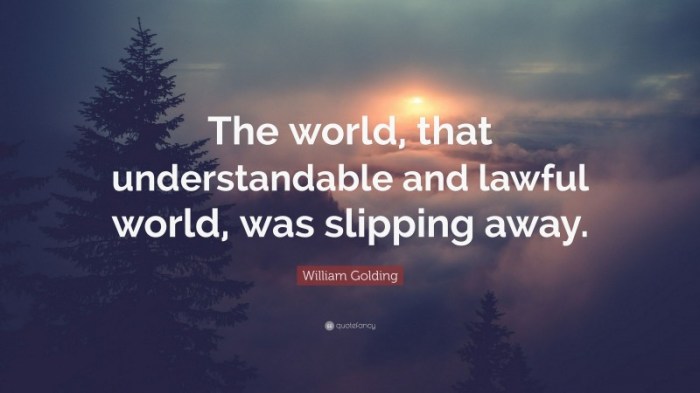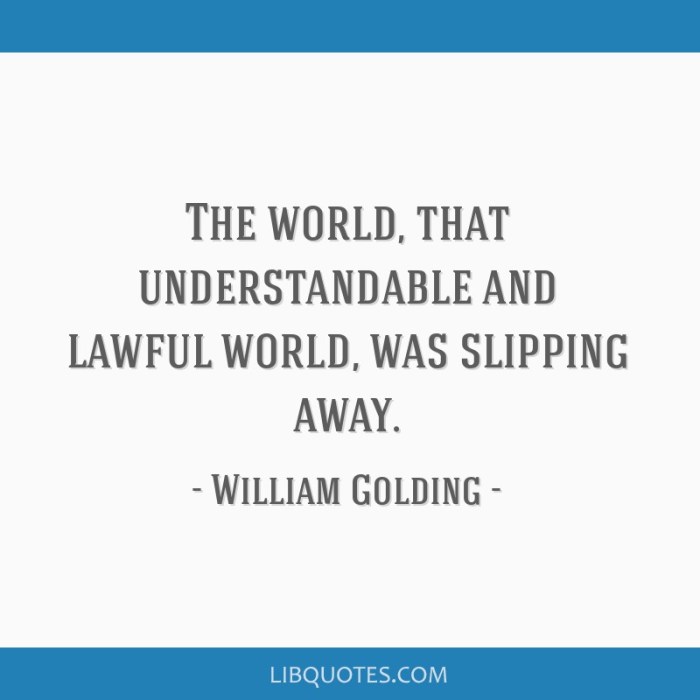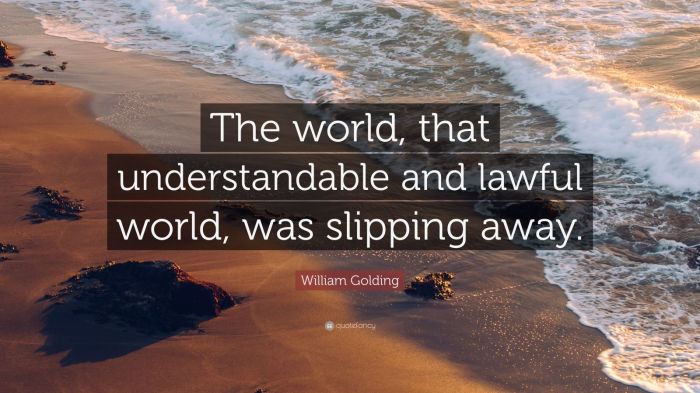The world that understandable and lawful world was slipping away – The world that was once perceived as orderly and comprehensible is slipping away, replaced by a landscape of uncertainty and chaos. This enthralling narrative explores the factors contributing to this erosion and its profound implications for individuals and societies.
From the rise of unpredictable events to the challenges of globalization, this work delves into the psychological and societal consequences of living in a less predictable world.
1. The Fragility of Order and Understanding

Once upon a time, the world was perceived as an orderly and comprehensible place. The laws of nature were thought to be immutable, and the universe was believed to be governed by a rational and benevolent force. However, in recent years, this perception has begun to erode.
A number of factors have contributed to this erosion, including the rise of science and technology, the increasing interconnectedness of the world, and the growing awareness of the complexity of natural systems.
2. The Rise of Uncertainty and Chaos
As our understanding of the world has grown, so too has our awareness of its uncertainty and chaos. We now know that the laws of nature are not always as immutable as we once thought, and that the universe is not as rational or benevolent as we would like it to be.
This has led to a growing sense of uncertainty and anxiety about the future. We no longer feel as confident in our ability to predict or control events, and we are increasingly aware of the fragility of our world.
3. The Search for Meaning in a Changing Landscape
The loss of a stable and orderly world has led many people to search for new meaning and purpose in life. Some have turned to religion, while others have sought solace in philosophy or art.
There is no one right answer to the question of how to find meaning in a changing world. However, it is important to remember that we are not alone in our search. Millions of people around the world are also struggling to find their place in a world that is increasingly uncertain and chaotic.
4. The Impact on Human Behavior

The perception of a chaotic world can have a significant impact on human behavior. It can lead to increased anxiety, fear, and social unrest.
When people feel that they are living in a world that is out of control, they may be more likely to lash out at others or to withdraw from society altogether.
5. The Role of Technology and Globalization: The World That Understandable And Lawful World Was Slipping Away

Technological advancements and globalization have played a major role in the erosion of a comprehensible world.
Technology has made it possible for us to communicate with people all over the world, and it has also given us access to a vast amount of information. However, it has also made us more aware of the world’s problems, and it has made it easier for misinformation and propaganda to spread.
Globalization has also contributed to the erosion of a comprehensible world. It has led to increased interconnectedness between countries, and it has made it easier for people and ideas to travel around the world.
Key Questions Answered
What are the key factors contributing to the erosion of order and understanding?
Technological advancements, globalization, and the rise of complex phenomena that challenge our traditional frameworks of knowledge.
How does the perception of chaos affect human behavior?
It can lead to increased anxiety, fear, and social unrest, as individuals struggle to cope with the unpredictability of their surroundings.
What are the potential scenarios for the future of order and understanding?
A return to a more stable and comprehensible world or the embrace of a more chaotic and unpredictable existence, with the potential for both positive and negative consequences.